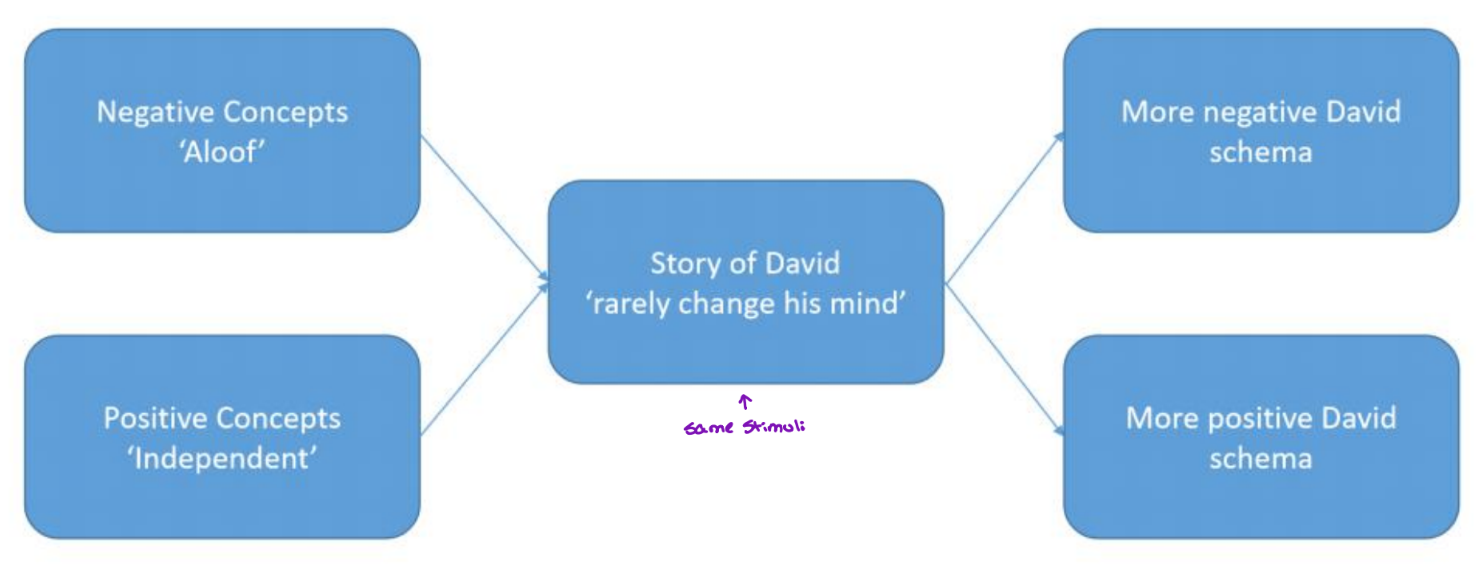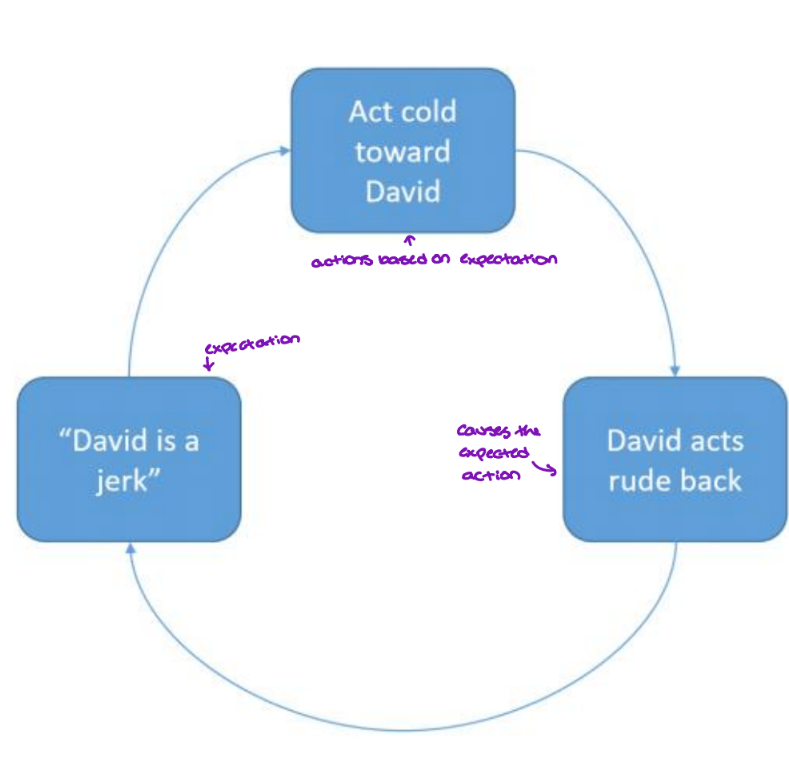3.1 Schemas
1/24
Earn XP
Description and Tags
05. Social Cognition I
Name | Mastery | Learn | Test | Matching | Spaced | Call with Kai |
|---|
No analytics yet
Send a link to your students to track their progress
25 Terms
Define: Social Cognition
the use of cognitive methodologies (& theories) to understand people & social situations
related to process → asks how &/or why
related to what’s in our head → cognitive representations/schemas
is about people (social)
Three Basic Motives Influencing Thinking About the Social World
the need to be accurate → activated when being inaccurate could result in undesired outcomes
the need to reach closure quickly → activated when thinking is effortful or unpleasant
the need to confirm what one already prefers to believe → activated when prior beliefs/values are brought to mind, central to sense of meaning in life/personal worth, or threatened by contradictory info
Three Facets of Memory Examined by Social Cognition
how we take info from the outside world & encode it (select)
how this interpretation of the info is stored in memory (interpret)
how this info is retrieved from memory & used (remember & use)
Define: Categories
mental “containers” in which people place things that are similar to each other
Define: Schema
a mental structures, stored in memory, that represent knowledge about a concept or type of stimuli
includes…
attributes & the relationships among those attributes
associations w other mental structures → complex schemas
Importance of Schemas
reduce the amount of info to process (stores more important things in memory)
reduce ambiguity (thus easier to respond to stimuli)
guide…
attention & encoding → how quick we notice / what we notice / how we interpret what we notice
memory → guides encoding & retrieval
judgements → impressions influence judgements & schemas form impressions
behaviour
Define: Scripts
schemas about an event that specify the typical sequence of actions that take place
Define: Impressions
schemas people have about other individuals
Cultural Source of Schemas
direct contact w people, events, & ideas
indirect contact w parents, teachers, peers, books, newspapers, magazines, television, & the internet
Reinforcement of Schemas by Social Narratives
info about people/evets is often passed from one person to another
info is altered by schemas (individual’s own schema)
stories are simplified (never the same story rom one person to the next)
stereotypes bias recall/retelling
Reinforcement/Creation of Schemas by Mass Media
movies → e.g. romantic ideals
news → people w schemas report what & how they want to report
Define: Associative Networks
models for how pieces of information are linked together & stored in memory
links result from semantic associations (concepts w similar meaning) and experiential associations (concepts experienced together in time/space)
Define: Accessibility
the ease w which people can bring an idea into consciousness and use it in thinking
(high accessibility → inc. salience)
Define: Salience
the aspect of a schema that is active in one’s mind &, consciously or not, colours perceptions & behaviour
(decays over time)
Define: Priming
the process by which exposure to stimulus on env. increases the salience of a schema
Effect of the Strength of Association on Accessibility, Salience, & Priming
more strongly associated attributes/concepts will be more accessible, salient, & easier to prime
Define: Chronically Accessible Schemas
schemas that are easily brough to mind b/c they are personally important & used frequently
Options When Introducing Novel Info into Schemas (Piaget)
Assimilate: use an existing schemas to interpret the novel info (make new info fit)
Accommodate: change existing schema to incorporate the novel info (make schema fit)
Priming on the Perception of Stimuli
priming can effect perception

Benefits/Pros of Schema Activation
(2)
Efficient, learned perception & actions
‘prepared’ / state of preparation
Limitations/Bias of Schema Activation
(3)
insensitive to schema inconsistent info
results in: (1) confirmation bias, (2) self-fulfilling prophecy, (3) stereotype & prejudice
Define: Confirmation Bias
the tendency to view events & people in ways that fit how we want & expect them to be
Two Reasons for Confirmation Biases
ambiguous info is interpreted in a schema-confirming manner
people tend to pay more attention to schema-consistent info &/or ignore info that doesn’t fit
Define: Self-Fulfilling Prophecy
the phenomenon whereby initially false expectations cause the fulfillment of those expectations
Three Step Cycle of Self-Fulfilling Prophecies
have an expectation (schema) about another person
this expectation can influence actions toward that person
these action can cause this person to act in ways that are consistent w your expectation
